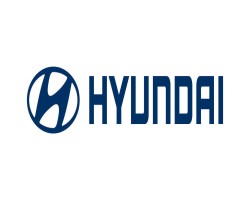Common Mistakes to Avoid When Renewing Two-Wheeler Insurance

Renewing your two-wheeler insurance is important to staying protected and stress-free on the road. Yet, it’s easy to slip up and make mistakes that might disrupt your coverage or cost you more than necessary.
This post highlights the typical errors people make, like forgetting deadlines, not reading the policy details carefully, or failing to compare options.
By spotting these issues early, you can avoid unnecessary problems and make smarter choices when renewing your policy. Keep reading to learn how to make the process smooth and secure the right protection for your ride.
Mistakes to Avoid When Renewing Two-Wheeler Insurance
1. Overlooking Policy Coverage Details
Not reviewing your policy's coverage details is a common mistake during two-wheeler insurance renewal. Not all two-wheeler insurance policies automatically include features like personal accident cover and damage protection. A standard insurance policy for bike only provides third-party liability coverage.
Comprehensive policies offer additional covers such as personal accident cover and damage protection. If you don’t check these details, you might not have enough coverage or can end up paying for coverage you don’t need. Carefully examine your current needs and match them with what your policy offers. Add-ons like zero depreciation can enhance coverage if they align with your requirements.
2. Missing the Renewal Deadline
Delaying the renewal process can lead to serious issues, such as policy lapses and penalties. Once your policy expires, your bike becomes uninsured, putting you at financial risk in case of accidents or theft. Additionally, a lapse means losing out on benefits like the No Claim Bonus (NCB). Timely two wheeler insurance renewal keeps your bike covered, prevents penalties, and ensures that you continue enjoying all the benefits your policy offers without interruptions.
3. Not Comparing Different Insurance Policies
Many bike owners simply renew their existing policy without exploring other options. While it might seem convenient, this approach could lead to higher premiums or inadequate coverage. Comparing policies is especially important when renewing, as it helps you find better coverage or lower premiums.
Take time to compare policies from various insurers, focusing on coverage, premiums, and customer service. Some providers may offer better benefits or lower rates for the same level of protection. Researching options ensures you choose the best insurance policy for a bike without compromising on value.
4. Ignoring Add-On Covers
Add-ons can provide valuable additional protection, but they require careful consideration. Common add-ons include roadside assistance, engine protection, and zero depreciation cover. However, purchasing unnecessary add-ons can increase your premium without offering much value.
Look at your riding habits and bike age before choosing add-ons. For example, zero depreciation cover is great for a new bike, but an older bike may not need it when renewing your two-wheeler insurance.
5. Setting the Wrong Insured Declared Value (IDV)
The Insured Declared Value (IDV) represents your bike's market value and directly impacts your premiums and claim amount. Setting an IDV that is too low can lower your premiums but may result in insufficient claims if your bike is stolen or damaged.
Conversely, a high IDV increases your premium unnecessarily. During your two-wheeler insurance renewal, ensure the IDV reflects the actual market value of your bike for accurate coverage and claims.
6. Failing to Utilise No Claim Bonus (NCB)
The No Claim Bonus (NCB) is a reward for not making any claims during the policy period, and it offers significant online savings on premiums. Many bike owners forget to transfer their NCB when switching insurers, missing out on this benefit.
Ensure your NCB is transferred if you switch insurers during your policy renewal. This can help you save money and keep your coverage the same.
7. Neglecting Personal and Vehicle Information Updates
Outdated information can create complications during claims. If your personal details, address, or bike modifications have changed, you must update them during renewal. Insurers rely on accurate data to process claims efficiently.
During your two wheeler insurance renewal, take a moment to verify and update your information. This ensures smooth claim settlements and avoids potential disputes caused by mismatched records or incomplete details.
8. Forgetting to Check Online Savings
Many insurers offer premium online savings, especially for long-term policies, safe driving records, or multiple policy purchases. However, failing to inquire about these can result in paying more than necessary. Look for loyalty programs or other special offers when renewing your policy, as these online savings can help reduce your premium while maintaining coverage.
9. Not Reading Policy Terms Carefully
Many insureds skip the fine print. During renewals, insurers sometimes update terms and conditions, such as exclusions or claim procedures. Make sure to review these updates to avoid surprises. Missing these details could lead to denied claims or unexpected costs.
Before finalising your two-wheeler insurance renewal, read through the policy document carefully. Clarify any doubts with your insurer to avoid surprises during the claim process.
Conclusion
Renewing your two-wheeler insurance is not just about extending your policy; it's about making informed choices to protect yourself and your bike. Avoid mistakes like missing deadlines, overlooking coverage details, or missing out on discounts to ensure smooth coverage.
Compare policies, update your details, and take advantage of benefits like the No Claim Bonus. These simple steps will help you save money, improve coverage, and enjoy worry-free rides with the right policy.
What's Your Reaction?





















